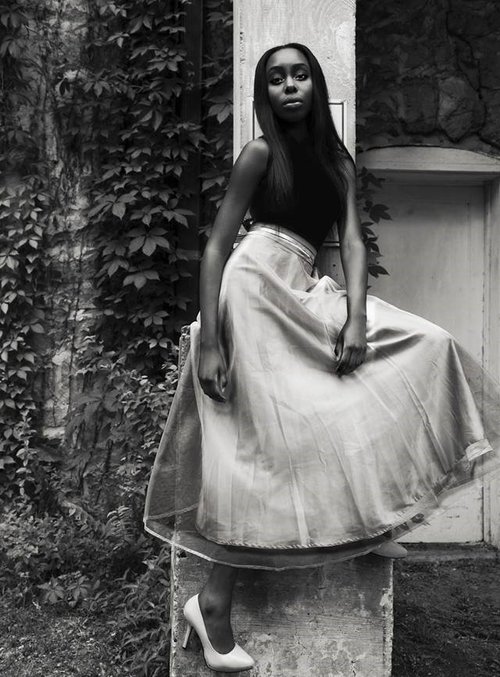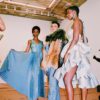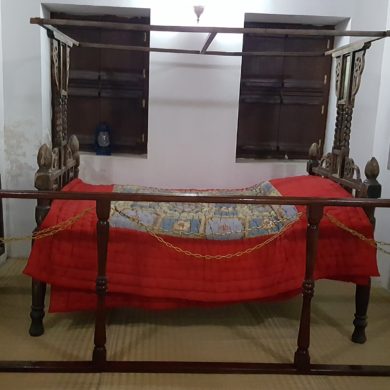
Photo: The Book of Jane. Styled by Lauren Ashford and Sasha-Gay.
It’s New York Fashion week, and amid the anticipated hype, backstage madness, and street style extravaganza, one particular showing is overpowering the fashion press. Kanye West debuted the fourth installment of his Yeezy collection at Roosevelt Island, and of course, drama ensued. He’s into that kind of thing, you know. His and artistic partner, Vanessa Beecroft’s concoction of fashion and performance art is getting a lot of attention, per the usual. However, not for the reasons you might expect (ahem! boring clothes), and buzz has been generating since days before the NYFW presentation.
Leading up to the event, West received insurmountable backlash for his casting call requesting “multiracial women only,” marking just the beginning of sizable coverage he would accrue. After all, the commonly labeled “controversial” artist has become synonymous with “egotistical stunt-puller.” Those sentiments probably still won’t get any rejections from me in the foreseeable future. Facts are facts.
Ordinarily, the attention would center on his designs – or lack thereof – and over-the-top preparations. But, after requesting models to stand extensively outside in broad daylight (at peak temperatures), essentially exposing them to the dangers of heat exhaustion (some models reportedly fainted), the conversation quickly switched from “Kanye doesn’t like black women” to dissecting the harsh conditions imposed upon the hired models. Articles shot up from every direction criticizing the rapper, but one key component of the argument is missing, especially from fashion editors. Not a single piece that I read mentioned the history of model abuse, or information updating us on this subject.
While discussing any instance of model abuse is plausible, I’m afraid publishers, and the public has overlooked the underlying, particularly crucial facet to this story. They have entirely dismissed the fashion industry’s lengthy subjugation of these unfair practices. For years, designers and the like (i.e., photographers ) have treated models cruelly, and as West’s runway show proves, not much progress has been made. Model victimization is carried out not only in an outright manner – telling models they aren’t the right size, color, kind of beauty – but implicitly as well, by subtlety indicating the parameters of these exclusive standards; such as placing classism and popularity over talent. (See: The various quotes, articles, etc. about social media stars taking jobs from professionals.)
To consider the failings of West’s presentation as some new phenomenon, as an isolated incident with unfounded roots is degrading. Dishonest at the very least. This ill-treatment is long-standing behavior, which has become an acceptable system inherent to this business. It is this same mistreatment that forced models Naomi Campbell, Bethann Hardison, Iman, and fashion editor Andre Leon-Talley to band in an effort to challenge racism in fashion. Although, this subject matter encompasses many forms of injustice aside from being asked to stand still and walk in the most impractical shoes.
Through a 2012 op-ed published in the Guardian, Sara Zika – fashion model and founder of the non-profit organization, Model Alliance – offers a chilling first-hand account concerning the environments in which models have to work, specifying rampant sexual misconduct, misogyny, and even more disgusting, predatory behavior toward minors. With these findings, it could be understood why not many writers angled their reactions to bring forth the more substantial point; these offensive acts are so ingrained, it is the natural order of life behind the glamour, making it easy to forget the serious implications. Still, there is no excuse for hyper-focusing on Kanye instead of the bigger picture.
Beecroft, who has a history of poorly handling models, responded to scoldings of their show in the most insulting manner, placing blame on Kanye and the “emotional stress” caused by a lengthy waiting period. In the NYMag The Cut article posted this morning, she states, “That’s a production issue not related to me,” not taking into account how her actions perpetuate the problematic idea – models passing out in the name of fashion – as just a part of the job.
This most recent example of the pressures subjected to fashion models is indicative of a vicious ideology maintained by the industry collectively. We cannot avoid the reality of models being treated merely as their job titles, as lifeless mannequins found in store windows. What’s more, we should not miss any opportunity to delve into this as a systemic nuisance.
By no means is this an attempt to minimize what happened at the Yeezy season four show; rather, it is a cry to industry professionals. Address model abuse in its entirety, and in turn, further the causes of those advocating for them. Models should be viewed as humans first, and thus, treated respectfully.


